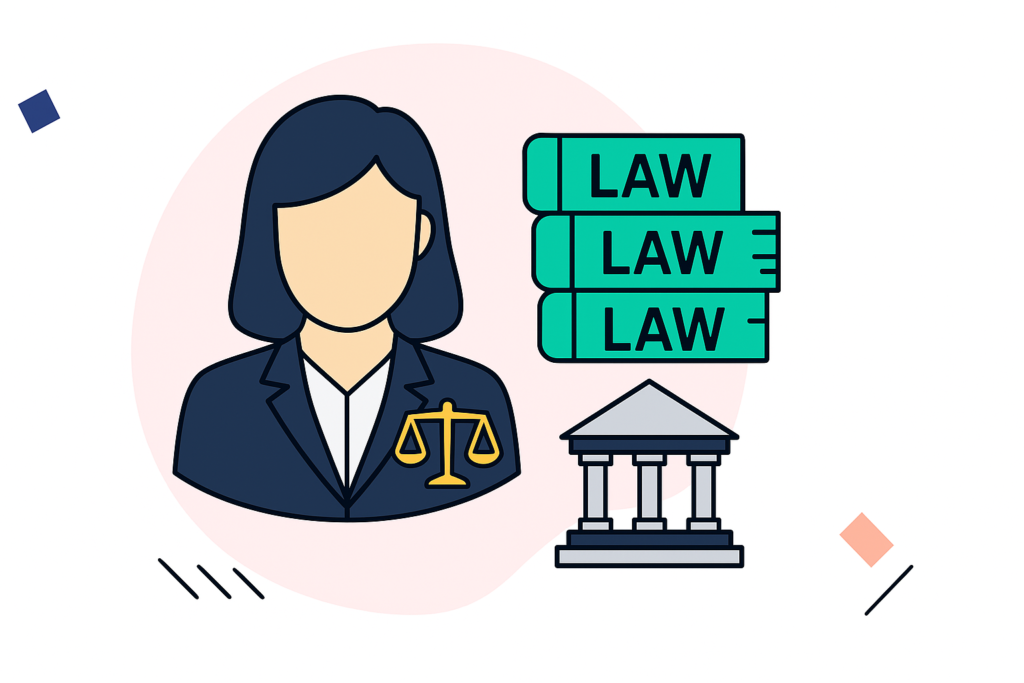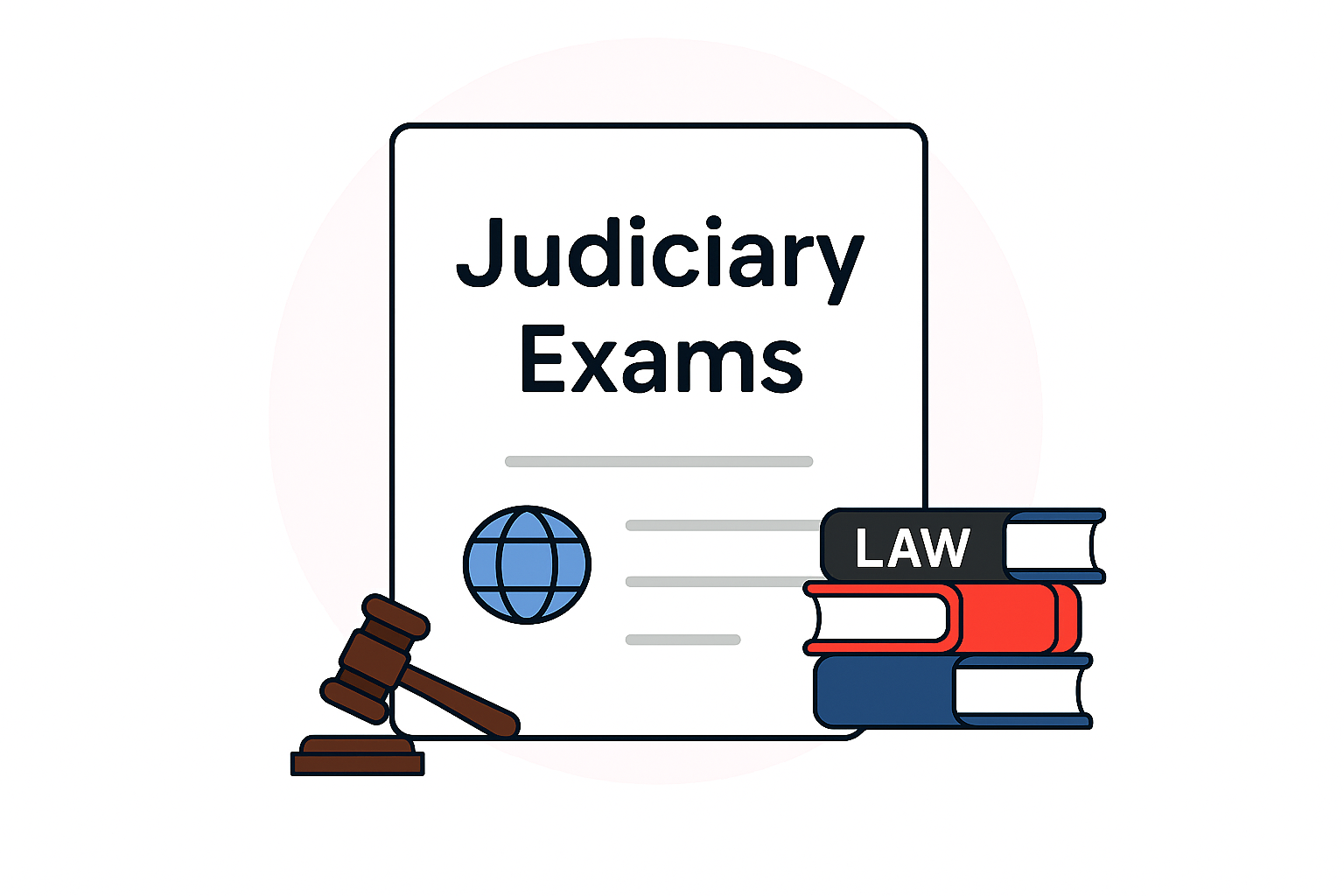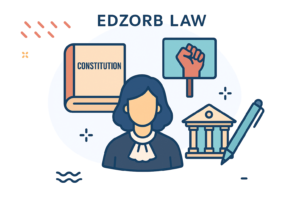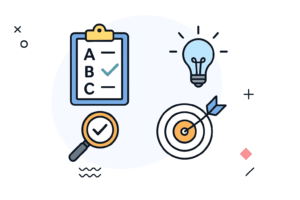The Judiciary exam is one of the most competitive and prestigious exams in India. Every year, thousands of aspirants prepare, but only a few secure the coveted seat on the bench.
The difference? It’s not brilliance. It’s strategy, discipline, and smart preparation. And with the right tools; like Edzorb Law you’re already a step ahead. Let’s break down how top rankers prepare and how you can follow the same path.
Step-by-Step Success Strategy for Judiciary Exam

🔹 1. Understand the Syllabus Inside Out
- Break the syllabus into core subjects:
Constitutional Law, BNS, BNSS, CPC, Contract Law, and BSA - Identify optional subjects based on your target state
- Highlight key topics and maintain a syllabus checklist
- Don’t ignore Current Affairs and GK—they’re vital for both Mains and Interview stages
Tip: Keep a printed copy of the syllabus on your study desk
🔹 2. Build a Disciplined Daily Routine
Morning – Study complex legal subjects
Afternoon – Tackle lighter topics (e.g., GK, Current Affairs)
Evening – Solve mock tests and analyze landmark judgments
Night – Review and revise what you studied during the day
Consistency > Volume .A daily 5-hour smart schedule beats irregular 10-hour marathons.
🔹 3. Choose Quality Resources, Not Quantity
Toppers don’t read everything; they master a few great books:
- Constitutional Law – M.P. Jain / V.N. Shukla
- BNS – Ratanlal & Dhirajlal
- BNSA – Kelkar’s Lectures
- Contract Law – Avtar Singh
- GK – Lucent’s GK / Manorama Yearbook
Stick to one book per subject and revise it multiple times.
🔹 4. Master the Landmark Judgments
Build a personal database of the Top 100 landmark cases:
- Include Facts, Issues, Ratio Decidendi, and Conclusions
- Focus on Constitutional Law, IPC, and Contract Law
- Stay updated with recent Supreme Court and High Court rulings
Use flashcards or visual maps for revision
🔹 5. Sharpen Your Answer-Writing Skills
Structure your answers using:
Introduction → Body → Conclusion
- Always quote provisions and case laws where relevant
- Solve previous year papers under timed conditions
- Practice writing on paper, not just typing
A strong answer structure shows clarity of thought and command of law
🔹 6. Solve Mock Tests & Previous Year Papers
Mock tests are non-negotiable.
- Attempt them like the real exam
- Review and learn from your mistakes
- Adapt your strategy accordingly
Mocks build speed, accuracy, and confidence
🔹 7. Make Revision a Ritual
- Use spaced repetition to review weekly
- Create one-page notes for every subject
- Use revision charts or visual cues for fast recall
Regular revision = Long-term retention
🔹 8. Stay Updated with Legal Current Affairs
- Read The Hindu or Indian Express
- Follow legal news via LiveLaw, Bar & Bench, or Edzorb’s legal updates
- Make short notes on recent judgments and legal developments
Crucial for both Mains and Interviews
🔹 9. Take Care of Your Health
- Aim for 6–8 hours of sleep daily
- Include light exercise, yoga, or meditation
- Eat nutritious meals and stay hydrated
A fit mind lives in a fit body. Don’t ignore it!
🔹 10. Stay Positive, Stay Flexible
- Don’t be discouraged by setbacks
- Adjust your strategy when something isn’t working
- Surround yourself with like-minded, positive peers
Mindset > IQ. Confidence is your best preparation.
Final Formula: Success = Strategy + Consistency + Smart Prep

Judiciary prep isn’t about being a genius; it’s about having a battle plan and the will to stick to it.
With Edzorb Law, you get:
- Visual Learning explanations of tough legal concepts
- Mock tests, flashcards, and legal updates
- Mentorship and community for real-time support
Remember: You don’t need to be a topper to crack the exam. You just need the right tools and the right mindset. ✨ Start today. Your judicial journey begins now, with Edzorb by your side.










 Features
Features






